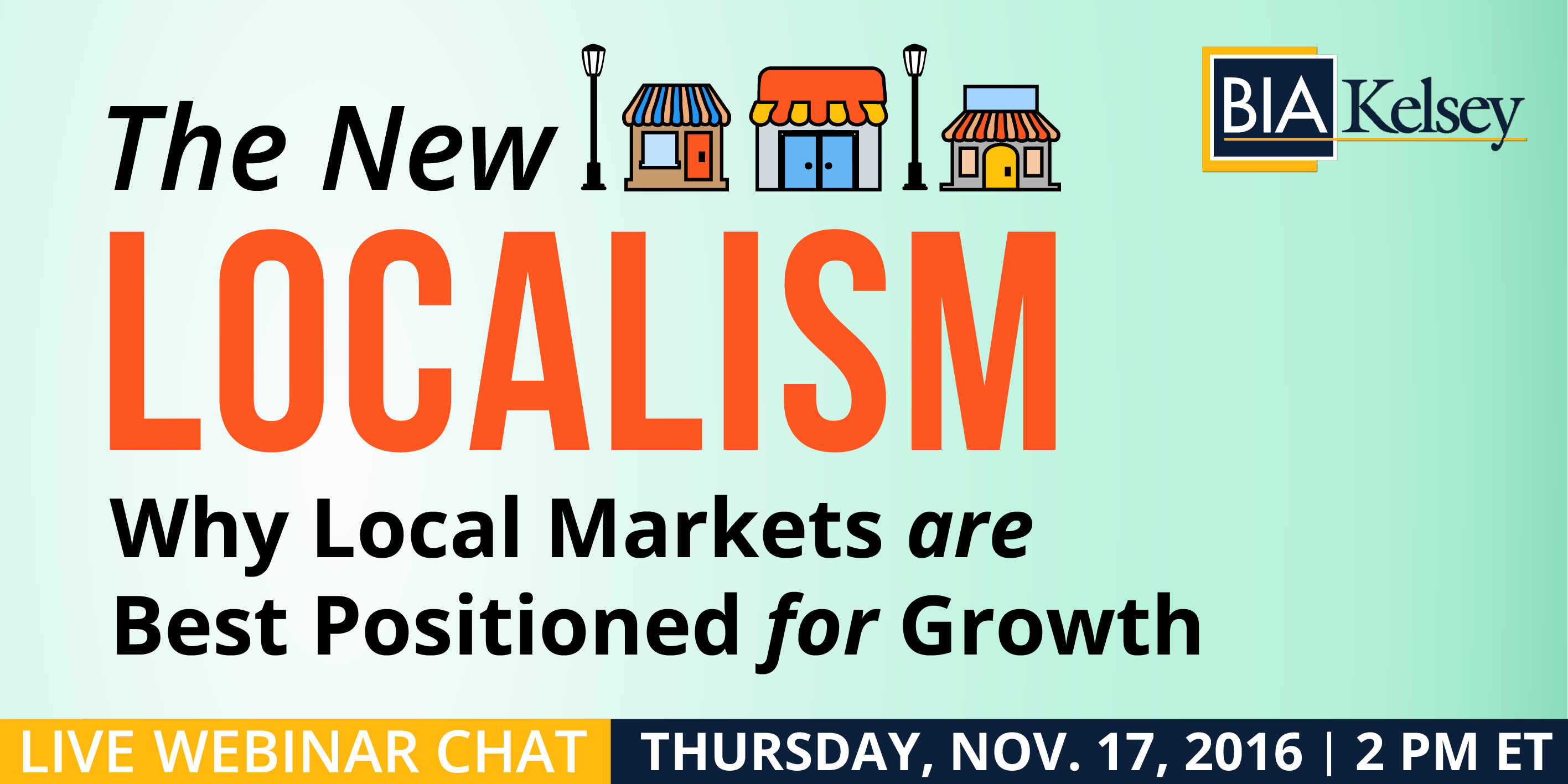
“Industry consolidation has mitigated local market analysis and study,” BIA/Kelsey’s executive-in-residence Maribeth Papuga argued in yesterday’s webinar “New Localism: Why Local Markets Are Best Positioned for Growth.” Papuga, a 25-year media, marketing and advertising veteran, was most recently EVP of local media investment and activation at MediaVest. Papuga observed that, “technology and data automation provide false security around local intelligence.” This shift away from traditional marketing practices of developing deep local market insights, factoring in local cultural tastes and customs into messaging and distribution for reasons of procurement and bottom line efficiency is “muting local market insights” at the peril of marketers seeking growth.
Papuga was joined by Stacey Schulman, Katz Media Group’s EVP of Strategy, Analytics and Research. Katz is the country’s largest media rep firm. Schulman advocates that marketers tether their brands to the tangible and “leverage localism to maximize impact in real communities.” This really matters, Schulman pointed out citing case studies and research from Mintel/Havas Worldwide showing that overall 61% of consumers agree that, “I would like my favorite brands/companies to play a bigger role in my community.”
What both Papuga and Schulman are seeing is that local media can provide marketers a trusted gateway to the hearts and minds of consumers who are developing a greater sense of community and localism. Marketers should recognize that changing demographic and economic conditions at the local level are altering service needs and access in ways that are important to consumers but impact them differently across markets.
As brands seek to bridge online and offline experiences with omnichannel strategies and unifying the brand experience in all consumer touchpoints, the new localism can help differentiate and deepen the brand experience. Papuga and Schulman see this strategy as critical to driving growth.
Some key takeaways from the discussion include:
- All consumers are local consumers and relevant messages matter.
- Local pride and the rise of the city-state will nurture home-grown businesses and attract marketers to make local connections.
- Purchase patterns online and data attribution may miss important signals without building in market assumptions relative to local mindset and conditions.
- Media fragmentation is making local data more important.
- Maximize media and technology platforms within the local infrastructure to create community at every possible intersection.
Papuga will be speaking next month in Boston at BIA/Kelsey’s NEXT conference. Also check out her recent article, The Localism Movement and Its Elusive Data Insights.
The webinar is available on-demand here and the highlights slide deck here.

This Post Has 0 Comments